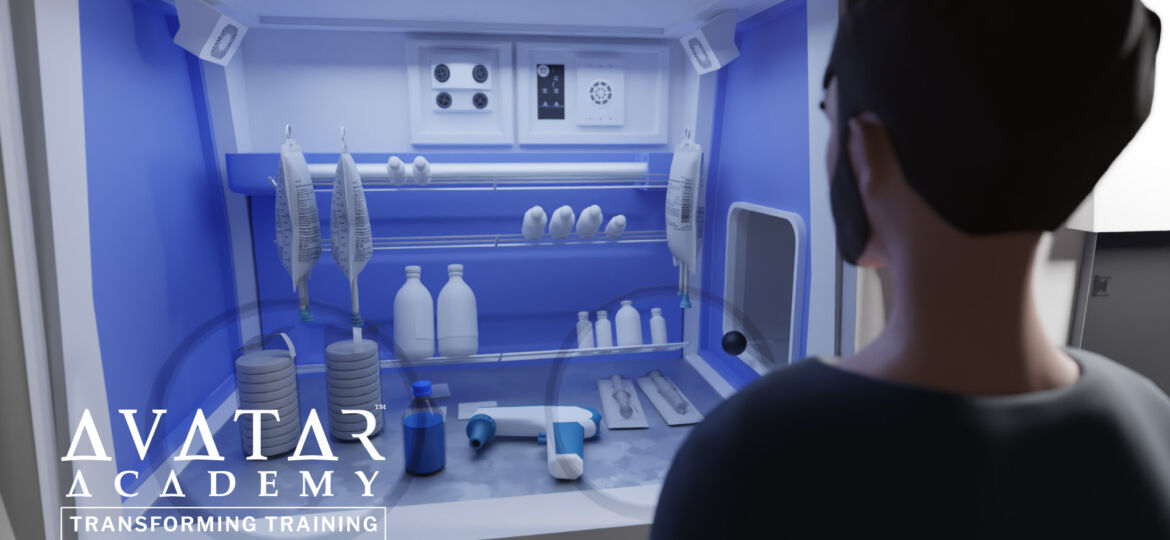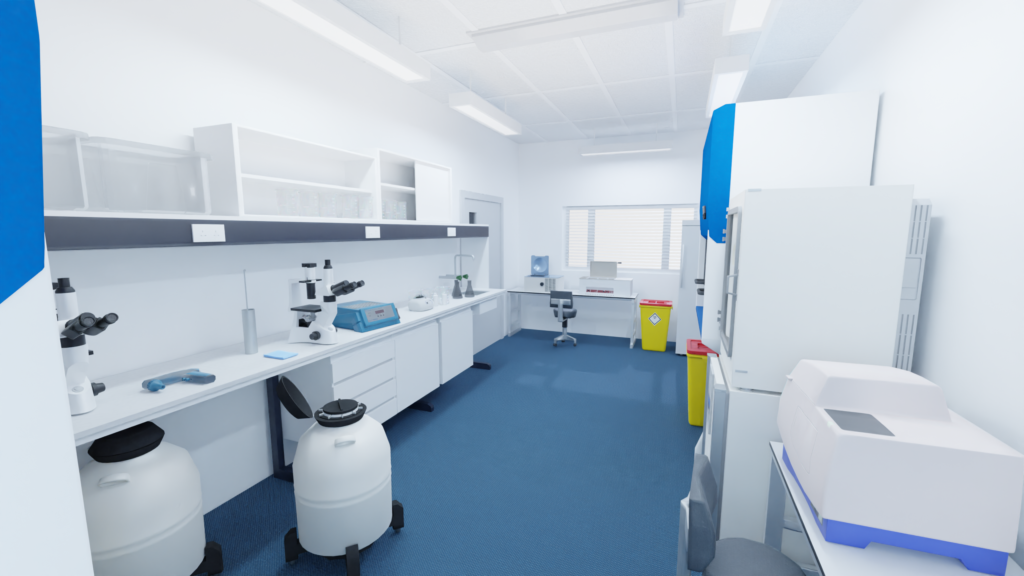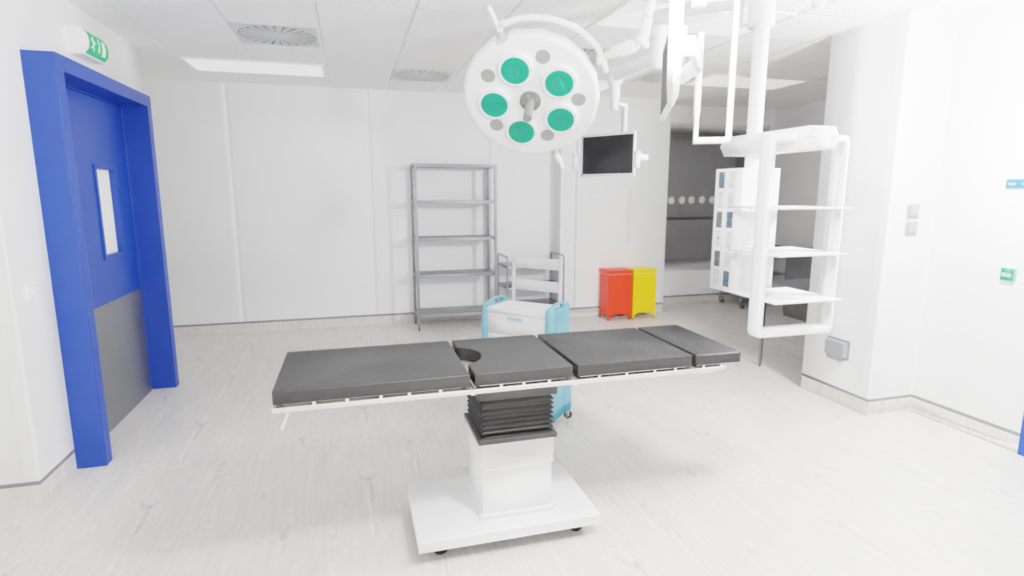
What Are Virtual Labs?
Virtual labs are digital replicas of physical laboratories that present a host of benefits. This blog is going to explore the many virtual labs benefits, from efficiency to safety. These labs, powered by software and often augmented with virtual reality technologies, simulate the real-world environment and equipment. This means users can conduct experiments, operate machinery, or test processes without ever needing to interact with physical elements. Essentially, when we mention a ‘fully virtual lab,’ we’re talking about an immersive lab experience that exists entirely within the VR realm.
The primary objective of virtual labs is to provide a platform where individuals can explore, learn, and practice without the constraints and costs associated with a traditional laboratory setup. This is particularly invaluable in fields like biopharma and medtech, where precision, accuracy, and safety are paramount. Virtual labs ensure that learners can make mistakes and learn from them without any real-world consequences, such as wasting valuable resources or risking potential hazards.
These labs can be accessed from virtually anywhere, provided one has the necessary equipment, often just a computer or a VR headset. This ease of access also means that training or research isn’t bound by the confines of a physical space or the availability of specific equipment, making it a flexible and scalable solution for organisations worldwide.
In essence, virtual labs bridge the gap between theoretical knowledge and practical application, offering an environment that’s as close to reality as possible without the inherent risks and limitations of a physical lab.

How Do Virtual Labs Work?
Virtual labs, at their core, operate on sophisticated software platforms that replicate real-world laboratory environments and equipment. These platforms harness the power of cutting-edge technologies, such as AR and VR, to create immersive, interactive experiences. But how exactly do these labs function?
The first step in setting up a virtual lab is the creation of a digital twin of the physical lab environment. Every piece of equipment, instrument, and even the space itself is meticulously modelled in the digital realm. This modelling can be so precise that users feel they are interacting with the real thing when in the virtual space.
Once the environment is established, the virtual lab integrates simulations. These simulations are scenarios or procedures that a user might encounter in a ‘real-world’ lab setting. For instance, in the medtech and biopharma sectors, these could range from simple tasks like using a pipette to more complex processes such as operating advanced machinery or synthesising new compounds.
Mersus Technologies on our Avatar Academy virtual learning platform create virtual labs with particular benefits. Our lab simulations work on mobile headsets (they don’t require the headset to be hooked up to a powerful PC) and they use hand-tracking instead of controllers. This means that users can have a deeply immersive experience using just their hands, without the need for complex external controllers. Such direct interaction, made possible by hand-tracking, enhances the realism and intuitiveness of the experience. Imagine being able to reach out and “touch” a piece of virtual equipment, operate it as you would in the real world, and receive real-time feedback on your actions – that’s the level of immersion Avatar Academy offers.
Furthermore, the mobile aspect ensures that these labs are not tethered to one location. With a compatible VR headset, users can access the Avatar Academy’s virtual labs from virtually anywhere, making it a powerful tool for decentralised training and research.
Virtual labs, driven by platforms like Avatar Academy, work by merging high-fidelity digital replicas of real-world labs with interactive simulations, all augmented by intuitive, hand-tracked VR technology. The result is a seamless blend of education and immersion, ensuring users not only learn but also ‘experience’ their tasks in the safest and most efficient manner possible.
Key Benefits of Virtual Labs
Safety First: One of the most significant advantages of virtual labs is the elimination of risk. Users can familiarise themselves with procedures, equipment, and potentially hazardous materials in a controlled, risk-free environment. This ensures that when they transition to real-world settings, they are well-prepared and confident.
Cost-Efficient: Virtual labs can drastically reduce the overhead costs associated with physical labs. There’s no need for consumable materials, and maintenance costs for equipment are null. This results in substantial savings in the long run.
Accessible Learning: Geography and time zones cease to be barriers. With virtual labs, users from around the world can access the same training modules and resources, ensuring a standardised learning experience.
Repeatability: Virtual labs allow for unlimited repetitions. If a procedure or experiment doesn’t yield the expected result, users can simply restart the simulation without any material wastage or additional costs.
Scalability: As businesses grow and evolve, virtual labs can easily be expanded or updated to include new equipment, processes, or scenarios without the significant capital expenditures associated with physical labs.
Real-time Feedback: Most virtual lab platforms provide immediate feedback. This ensures users understand mistakes as they make them, reinforcing correct procedures and enhancing the learning curve.
Environmentally Friendly: Without the need for consumable materials or the waste associated with physical experiments, virtual labs are a greener alternative, reducing the ecological footprint.
Future-Proof Learning: As technology continues to advance, virtual labs can be updated to reflect the latest in industry standards, ensuring that users are always trained on the most current procedures and equipment.
Consistent Training: Regardless of when or where a user accesses a virtual lab, the experience remains consistent. This uniformity ensures that everyone receives the same high-quality training.
Integration with Modern Technologies: Platforms like Avatar Academy, with hand-tracked VR experiences, push the boundaries of what’s possible in virtual labs, offering deeper immersion and more intuitive interaction.

Use Cases in Biopharma and Medtech
- Drug Development and Simulation: Before a drug reaches human trials, virtual labs can simulate its effects on virtual tissues or organisms. This provides preliminary data that can guide real-world experiments, potentially saving time and resources.
- Complex Equipment Training: Biopharma and medtech fields often involve specialised equipment. Virtual labs allow employees to familiarise themselves with these tools in a risk-free environment, ensuring confidence and competence when they transition to real-world operations.
- Cleanroom Procedures: Virtual labs can train staff on the strict protocols required in cleanrooms, ensuring they understand the importance of contamination control and the steps necessary to maintain these standards.
- Surgical Simulation: In the medtech sector, virtual labs can simulate surgical procedures, allowing medical professionals to practise intricate operations without any risk to patients.
- Disease Modelling: Biopharma professionals can use virtual labs to model the progression of diseases, testing the efficacy of various treatments in a controlled, virtual environment.
- Clinical Trial Scenarios: Virtual labs can model different patient responses to medications, helping researchers anticipate challenges and outcomes during actual clinical trials.
- Lab Protocol Training: Every laboratory has its set of protocols. Virtual labs ensure every employee understands and can effectively execute these procedures, promoting consistency and accuracy in real-world lab work.
- Molecular Modelling: On a microscopic scale, virtual labs can visualise and manipulate molecular structures, aiding in drug design and understanding biochemical interactions.
- Device Prototyping in Medtech: Before producing a new medical device, virtual labs allow for prototyping, testing, and iterative refinement without the cost of physical materials.
- Quality Control Procedures: Ensuring the quality of drugs and medical devices is crucial. Virtual labs provide training on QC processes, ensuring every product meets the necessary standards.
The biopharma and medtech sectors are complex, with high stakes in terms of patient safety and financial investments. Virtual labs, by offering a controlled, adaptable, and risk-free environment, provide invaluable tools for training, research, and development in these critical fields.
Real-World Success Stories: Mersus’ Virtual Labs in Action
Over the years, Mersus has pioneered the development of various VR-based virtual labs tailored to address specific training needs in the biopharma and medtech sectors. Some examples of the lab/clean room training we have produced are as follows.
- Clean Room Behaviours: Trainees navigated a virtual clean environment, learning and practising the meticulous procedures required to prevent contamination, thereby ensuring product integrity and safety.
- Lab Protocols: Our solutions have enabled lab professionals to immerse themselves in detailed virtual labs. These experiences have been paramount in training staff on precise lab protocols, emphasising accuracy and consistency – essentials for ensuring reproducible results in real-world scenarios.
- Medical Device Manufacturing: In the medtech sector, manufacturing medical devices with precision is crucial. We developed a virtual lab where users can walk through the entire manufacturing process, understanding each step in detail, and practising without the risk of damaging actual materials or equipment.
- Cell Culture Techniques: Culturing cells requires a nuanced understanding and meticulous technique. Our virtual lab provided a platform for trainees to practise this delicate task, ensuring they acquire the necessary skills before working on live cultures, thereby minimising potential wastage and errors.
- High-Value Annual Chemical Processes: One of our projects revolved around a high-stakes chemical process performed only once a year. Given its infrequency, professionals need regular training refreshers to stay updated. Our virtual lab solution allows teams to revisit and practise this process as needed, ensuring readiness and accuracy when the real-world process day arrives.
These real-world applications demonstrate how Mersus’ virtual labs can address diverse and intricate training needs, ensuring professionals are equipped with the knowledge and hands-on experience necessary to excel in their roles.
The Future of Virtual Labs
As technological advancements continue to shape the landscape of training and education, the role of virtual labs in sectors like biopharma and medtech is set to expand. Increasingly, organisations recognise the value of virtual training, not just as a cost-saving tool, but as a means to ensure comprehensive, consistent, and up-to-date skill development. As the complexities of procedures and protocols grow, the adaptability and scalability of virtual labs will be crucial. Moreover, with the advent of technologies like AI, we may soon see virtual labs that can adapt in real-time to the user’s proficiency, offering tailored learning experiences.
Virtual labs, like those developed by Mersus, are rapidly transforming the way industries approach training. In sectors where precision, consistency, and safety are paramount, such as biopharma and medtech, these labs offer a compelling solution to age-old training challenges. By providing a realistic, risk-free environment for hands-on learning, they bridge the gap between theory and practice. As we move forward, it’s evident that the role of virtual labs will only become more integral to ensuring top-tier professional development in these critical industries.